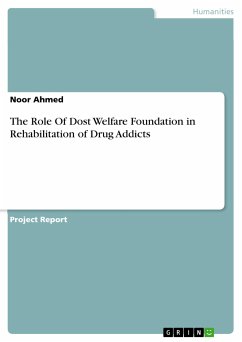Seminar paper from the year 2005 in the subject Sociology - Work, Profession, Education, Organisation, grade: 1,3, University of Hamburg (Institut für Soziologie), course: Oberseminar Arbeitsmärkte und Arbeitspolitiken im Länder-Vergleich, language: English, abstract: What has happened to the "European Dream" - the dream of becoming a plural unity with one constitution? After the debris, following the French "NON!" and the Dutch "NEE!" on the EU-referendum we can see clearly, how national preferences in instiution making diverge. Now, alternative plans are taken out of the drawers. Attempts to mobilize and to change EUcitizens opininons are being made. An interesting political process to watch. For this paper, I am going to analyse the character of the relationship between the basic concept of innovation and its role in the Varieties of Capitalism (VoC) approach worked out it detail in Hall and Soskice¿s "Varieties of Capitalism ". Orfeo Fioretos, one of the participating authors, aims to analyze and to exemplify national preference building on another level, a more dynamic one by shifting attention to how agreements in (multilateral) institutional decision making come about. The accelerated processes of structural change often referred to as "the globalization processes", and often understood as a neoliberal breakthrough to "all areas of life" forces us to take a look at the situation of labour markets. In this case at the German labour market, where the discussion about the "Standortvorteil" has become important, and where the lack of innovation is often made responsible for the misère of close to 5 mil. unemployed. So how are the these concepts linked? What does innovation have to do with national preference buidling? What is innovation? How can this be described best? These will be the leading questions. In the first step, I am going to summarize shortly the essence of one element of the VoC approach, that is, "The domestic sources of multilateral preferences" elaborated by Orfeo Fioretos. I will do this with regard to the constituent building blocks that accumulate to national preference building.This will set the basis for understanding the complexity of preference building in national states, the set of actors, and structures that partially predetermine the shape of their market economy, and how countries aim at maintaining their relative advantages. In the second step, I will give an outline about the construct and idea of innovation in general. This crucial construct shows that the main problem, whilst studiying this topic, lies in its communicative imprecision . [...]
Dieser Download kann aus rechtlichen Gründen nur mit Rechnungsadresse in A, B, BG, CY, CZ, D, DK, EW, E, FIN, F, GR, HR, H, IRL, I, LT, L, LR, M, NL, PL, P, R, S, SLO, SK ausgeliefert werden.









